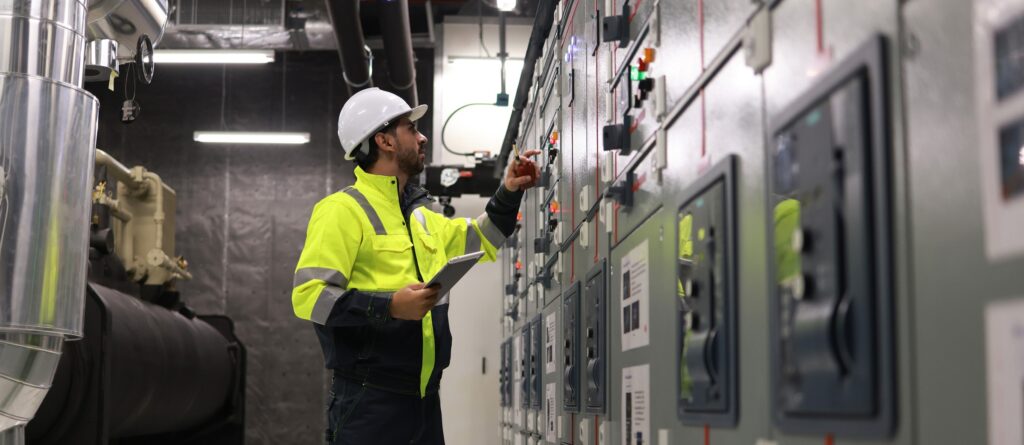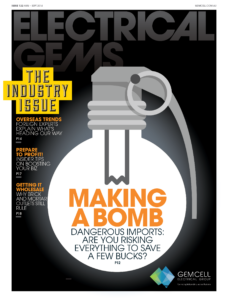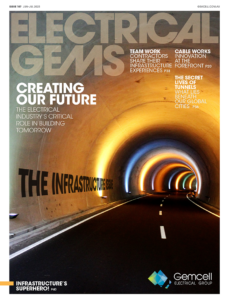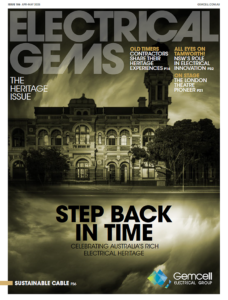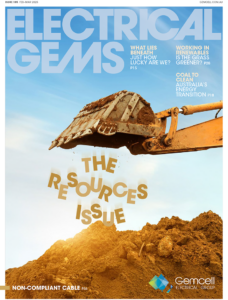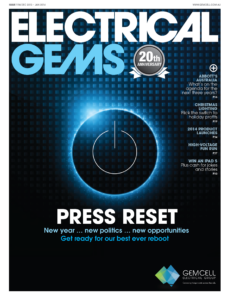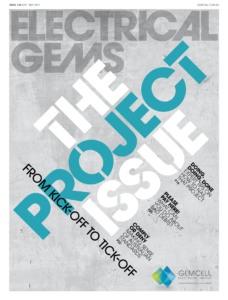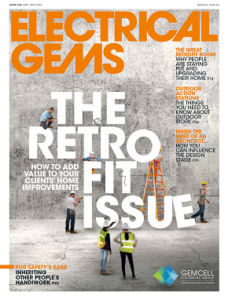Playing a role in building tomorrow can be a challenging but rewarding experience. Just put your diplomatic hat on, first.
Sometimes, specialising in a certain area or field is planned. Other times it happens by a strange quirk of fate, a chance meeting or one gig leading to a steady stream of work.
While there’s a lot to be said for having a variety of work coming in, there is a huge potential upside to having a reputation as a bit of an expert. It doesn’t need to be all or nothing, but if you’re known for being brilliant at something, you can expect the phone to ring regularly, and to be the go-to person for regular work.
Last issue, we spoke to contractors who spend a lot of time on heritage jobs, and this issue we’ve tracked down a couple who have a good track record on infrastructure projects.
Jason Rowe from Hello Electrical in Sydney says his expertise in infrastructure came about more by design than by accident.
“I’ve always had a passion for problem solving and working with electrical systems, so I naturally gravitated toward this field. After working in residential electrical work for a while, I started taking on bigger projects and realised that the challenge of handling complex, large-scale systems was something I really enjoyed. It’s been a gradual progression, but it’s been the right path for me.”
On the opposite end of the scale, Adam Bushell of AB Electrical & Communications in Sydney, who has worked on large-scale infrastructure projects, including roads, bridges and airports, says, “I got into this field after initially starting in residential work, and then I took on larger projects as I gained more experience. It was not planned but has worked out well.”
Jason says he’s worked on a wide range of infrastructure projects over the years, including commercial building electrical overhauls, data centre installations, and retrofitting old buildings.
“I have worked on everything from large commercial building electrical systems to renewable energy installations like solar farms and wind turbine networks. These projects are far from your typical residential job, mainly because of the complexity and scale. We’re talking about managing multiple contractors, large teams, tight deadlines, and the coordination of diverse equipment while ensuring safety compliance.
“I’ve also handled public works projects, such as upgrading street lighting and electrical systems for local governments. Each project has its own set of unique requirements, but they all involve complex systems and the need for strict safety protocols.”
How do infrastructure projects differ?
Whereas a regular residential or standard commercial job may be relatively straightforward, working on infrastructure projects brings a number of challenges – particularly when it comes to dealing with other trades.
Adam says, “Electrical work does not happen in a vacuum, and coordinating with plumbing, carpentry, and HVAC teams often brings its own set of hurdles. On one project, we were delayed due to miscommunication with the structural team, which required adjustments to the layout to accommodate electrical systems. That caused frustration, but it was a learning experience on the importance of early collaboration.”
To help manage this, Jason says soft skills are far more important than they perhaps are on smaller jobs.
“With large projects, there’s a lot of coordination with contractors, engineers, and project managers,” he says. “You have to be good at communication, problem solving, and negotiation. Being able to handle unexpected issues calmly and work efficiently with other trades is essential. In fact, I’ve seen how a smooth team dynamic can make a project flow 15-20% faster than expected, compared to projects with communication breakdowns.
“These projects typically involve working on systems that support a large number of people, which means tight timelines, higher stakes, and more coordination with other trades. One of the main challenges is ensuring that everything is up to code while working around any existing structures, which is often more complicated than starting fresh.”
One memorable job Jason encountered was on a commercial building upgrade where he found an old, unapproved electrical panel that had been “patched up” over the years.
“We had to halt work to obtain the necessary permits and remove the outdated equipment,” he says. “This added a lot of time and cost to the project, but in the end, it was a crucial step in ensuring the building’s safety. Situations like these are a reminder that thorough assessments upfront can save time and money down the road.”
For contractors thinking about getting involved in infrastructure work, Adam suggests building strong relationships with other trades is key.
“Also, develop a deep understanding of project management and always be proactive about staying up to date on industry standards and technology.”
Jason says it’s best not to go for the bigger jobs to begin with, and instead get some runs on the board:
“Start with medium-sized commercial jobs to build your experience and credibility,” he says.
Find your local Gemcell Electrical Wholesaler


